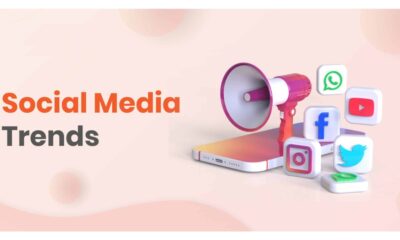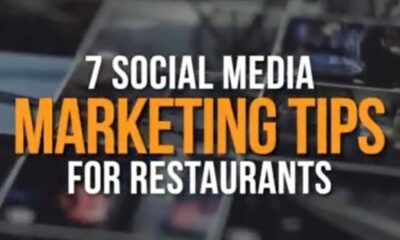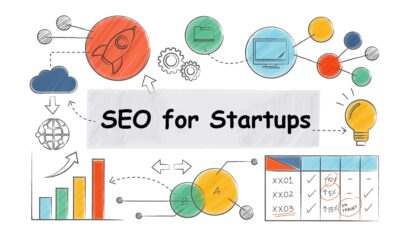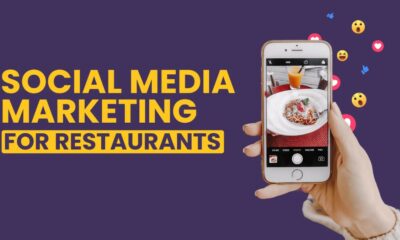Business
7 Sorts of Social Media and How Your Business Can Benefit From Them
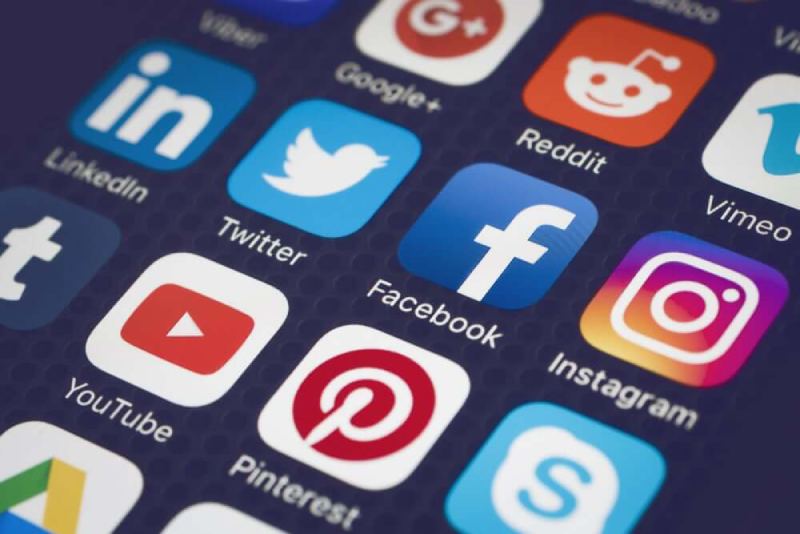
Social media has become a crucial component of marketing plans for companies of all kinds in the current digital era. Making the most of your company’s online presence requires an awareness of the various terrain of social media, as there are a plethora of platforms that appeal to different demographics and content types. The following list of seven social media platforms and their advantages for your company:
Facebook:
Facebook, one of the biggest social media networks in the world, gives companies access to a huge audience. Pages, Groups, and Ads are some of the tools that allow businesses to interact with customers, create communities, and successfully target particular demographics.
Creating interesting content, disseminating updates, and executing focused advertising campaigns can assist companies in raising their profile, generating leads, and boosting revenue. Businesses can use Facebook Pages as a central location to highlight their goods, services, and corporate culture, and they can use Groups to help create a feeling of community among people who share their interests.
Furthermore, Facebook Ads offer businesses strong targeting choices based on demographics, hobbies, and behaviors to connect with their ideal audience. Businesses may take advantage of Facebook’s enormous potential to improve their online visibility, establish stronger connections with clients, and eventually meet their marketing objectives by properly utilizing these capabilities.
Instagram:
Instagram is great for companies in the fashion, food, travel, and leisure sectors because of its visually engaging content. Businesses can creatively present their goods and services with photos, videos, and Stories of the highest caliber. Further raising brand awareness and increasing conversion rates can be accomplished by making use of features like Instagram Shopping and influencer relationships.
Businesses may now directly tag products in their Instagram Shopping posts, making it easier for customers to find and buy things they see on the app. Businesses can also expand their reach and establish credibility by working with influencers that have a sizable following in their area.
Businesses may use Instagram to build their brand identity, create deep connections with their audience, and eventually increase sales and revenue by keeping a consistent look, interacting with followers through direct messages and comments, and adding pertinent hashtags.
Twitter:
Businesses can use Twitter, a microblogging network, to interact with their audience and provide news and updates in real time. Twitter’s fast-paced environment makes it great for customer service, hot topic participation, and establishing a brand’s identity.
Businesses may raise their profile and become thought leaders in their sector by using hashtags, retweeting pertinent material, and starting discussions. Hashtags are essential for tweets to reach a wider audience. They let businesses engage in topics related to their expertise and establish connections with prospective clients.
Businesses can increase the reach of their message and establish credibility with their audience by retweeting or sharing material from influential people in the sector. Furthermore, you may cultivate a feeling of community and loyalty by actively interacting with your followers by answering their questions, attending to their issues, and asking for feedback. All things considered, Twitter gives companies a stage to highlight their knowledge, establish a personal connection with their audience, and keep ahead of market trends.
LinkedIn:
The preferred site for business-to-business networking, lead generating, and hiring, LinkedIn is geared for professionals. Businesses may interact with professionals in the field, display their knowledge, and draw in new customers and staff by using LinkedIn Ads, Company Pages, and content sharing.
Establishing credibility and growing a professional network can be facilitated for businesses through LinkedIn targeting choices, participation in relevant groups, and the publication of thought-provoking articles. LinkedIn Company Pages function as an online storefront where companies may showcase their offerings to a professional audience, including their products, services, and corporate culture.
Disseminating insightful articles, case studies, and thought leadership pieces establishes companies as authorities in their sector and motivates followers to interact. Engaging in LinkedIn Groups also gives companies the chance to network with other companies in the same field, exchange information, and become more visible. Through strategic utilization of LinkedIn’s extensive capabilities, organizations may effectively expand their brand, generate leads, and attract top talent.
YouTube:
Providing a robust platform for businesses to market their videos, YouTube is the second-largest search engine behind Google. Businesses can use YouTube to visually engage customers with product tutorials, behind-the-scenes videos, or brand narrative.
Businesses can improve consumer engagement, enhance website traffic, and raise brand awareness by producing high-quality video content, working with influencers or producers, and optimizing for search. With YouTube’s enormous user base and varied content ecosystem, marketers can reach consumers with a wide range of interests and demographics.
Businesses may become industry leaders and gain viewers’ trust by continuously creating high-quality videos that speak to the needs and interests of their target audience. In addition, interacting with viewers by leaving comments, liking, and sharing content promotes community building and continuous brand engagement.
All things considered, YouTube gives companies a dynamic platform to highlight their products, establish stronger connections with viewers, and accomplish their marketing goals.
Pinterest:
Pinterest is a great platform for businesses in the DIY, fashion, cosmetics, and home décor industries because of its emphasis on visual inspiration and discovery. Businesses can boost website traffic and product sales by using rich pins, visually appealing Pins, and information organization into boards.
By using Pinterest’s shopping advertisements and Promoted Pins, advertisers can access a highly engaged audience and increase brand exposure. While shopping advertisements let consumers buy things straight from the site, promoted pins let businesses amplify their content and target specific demographics based on interests, keywords, and behaviors.
A company’s reach and audience engagement can also be increased by taking part in group boards and working with influencers. Pinterest offers businesses a unique opportunity to display their goods, inspire users, and promote meaningful connections that ultimately result in improved brand awareness and revenue. This is because Pinterest places a strong emphasis on creativity and visual storytelling.
TikTok:
TikTok, one of the social media networks with the quickest growth, presents companies with a special chance to engage younger consumers with short-form video content. Through the production of engaging and genuine films that connect with TikTok’s user base, businesses may boost user engagement, build brand exposure, and potentially go viral.
Businesses can take advantage of TikTok Ads, collaborate with TikTok influencers, and participate in challenges to get into this quickly growing industry. Since TikTok’s algorithm favors real and engaging content, it is crucial for businesses to provide content that fits the platform’s culture and trends.
Interacting with consumers via likes, shares, and comments can help a business become more visible or Positively, a tiktok marketing company can assist you in establishing an appropriate plan as well. TikTok offers businesses a dynamic platform to exhibit their brand personality, engage with a younger market, and remain relevant in today’s digital landscape, all thanks to its emphasis on creativity and fun.
In conclusion, companies hoping to thrive in the digital sphere must comprehend the various social media platform kinds, such as Hootsuite and Hubstaff, as well as their unique advantages. Businesses may effectively communicate with their target audience, develop brand awareness, increase website traffic, and ultimately accomplish their marketing goals by carefully selecting and employing the appropriate social media channels.
Using a broad social media strategy can help businesses succeed in today’s competitive market, whether that plan be Facebook for community building, Instagram for visual storytelling, or TikTok for targeting younger populations. Furthermore, adopting ethical principles into social media marketing campaigns and supporting small business ideas can improve a company’s reputation and build client trust.
Businesses that prioritize social responsibility, honesty, and openness not only draw in and keep customers, but also make a beneficial impact on society. In conclusion, small firms can position themselves for long-term success in the digital age by fusing a strategic approach to social media with a dedication to business ethics.
-

 Gadget4 weeks ago
Gadget4 weeks agoAfter Grand Success on BLDC Ceiling Fan, Eff4 Is Launching Smart Bulb
-

 Festivals & Events4 weeks ago
Festivals & Events4 weeks agoGoogle Celebrates Cherry Blossom Season with Animated Doodle
-

 Business2 weeks ago
Business2 weeks agoPrakash and Kamal Hinduja: Driving Social and Environmental Change
-
Education3 weeks ago
Fred DuVal: University Leadership as a Critical Resource for Climate Change Research and Life-Saving Solutions
-

 Health2 weeks ago
Health2 weeks agoThe Hinduja Brothers Commitment to Global Health: Empowering Communities Across Borders
-

 Cryptocurrency3 weeks ago
Cryptocurrency3 weeks agoDesigned For The Masses: How Akasha (AK1111) Is Unlocking Crypto For The Next Billion Users
-

 Cryptocurrency3 weeks ago
Cryptocurrency3 weeks agoNexaglobal & Future World Token (FWT): Could This Be the Next Big Crypto Investment of 2025?
-

 Sports4 weeks ago
Sports4 weeks agoWomen’s NCAA Tournament 2025 Sweet 16: Full Schedule, Fixtures, Teams, Bracket, and How to Watch March Madness Basketball Match Live

